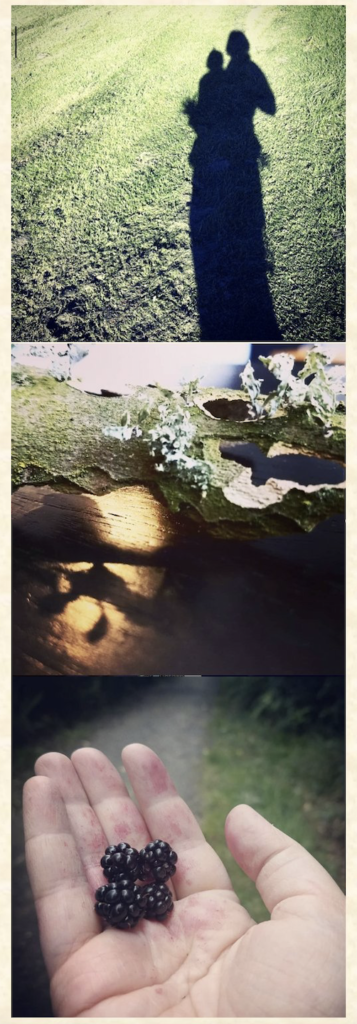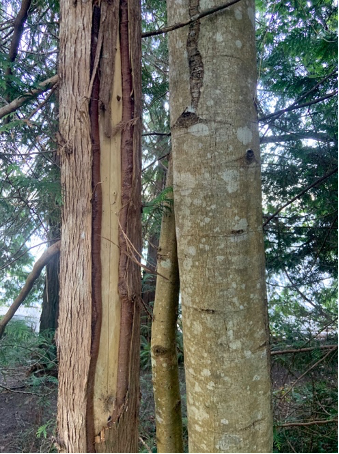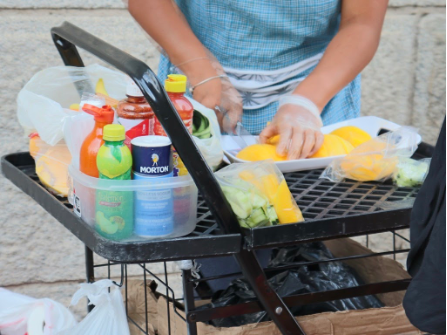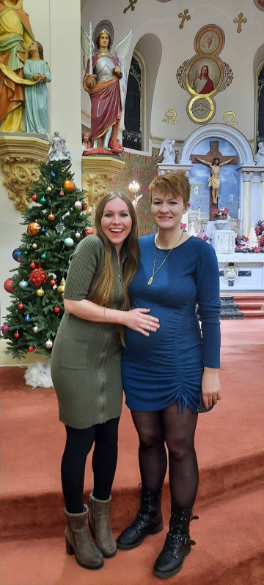Susan Wardell
Poetry, like ethnography, is about listening with the whole self. This was the focus of a workshop in January 2022, run in association with the SHA.
The workshop, entitled “Experiments in Ethnographic Poetry: the personal, the sensory, the more-than-human”, was part of the online AAA Workshop series (delayed from 2021). It was facilitated by Anthropology and Humanism’s Poetry Editor, Susan Wardell, and members of the journal’s Poetry advisory group: Ather Zia, Wesley Brunson, and Darcy Alexandra. The session was designed for people at any stage of their career (including students) and any level of experience or confidence with poetry, with over 50 people participating, for 2 hours, via Zoom.
Anthropology has a long history of engaging with a variety of different genres and forms of writing. North American anthropologist Toni Flores – writing in Anthropology and Humanism in 1982[1] – acknowledged that even defining poetry is difficult, but that it has to do with “sensuality and the mind”. In introducing this workshop, Susan read Flores’ poem ‘Marking Time’ to start the group thinking about the expectant and attentive mindset that both ethnography and poetry has in common. It is also a great example of how poetry can invoke the body and the senses, so this led into an initial warm-up free-writing focused on smellscapes and soundscapes from the field.
After some sharing and discussion, the workshop was then broken into two streams, focused on 1) autoethnography and autotheory, and 2) the more-than-human world, which participants selected from, based on interest. Below, we outline some of the exercises used in each session and, with permission from the individual participants, share a small sample of the work produced.
AUTOETHNOGRAPHY AND AUTOTHEORY
This stream, led by Wesley Brunson and Ather Zia, explored the intersections of the personal and professional; ways of listening, analyzing, and theorizing through body/ies; and poetry as a channel for the ‘surfeit’ of experience in the field. As a writing prompt for the first exercise, participants were asked to choose a photo, from their own devices; ideally something personal and resonant, which could be either related to their fieldwork, or their wider life.
They entered a period of freewriting based on this photograph, where they were asked to pay attention to what was both present and absent from the photo. For the second part of the exercise, they were tasked with editing what they had written into a restricted form of two stanzas, four lines of four words in each). This two-step exercise was intended to give a brief introduction to how one might generate “material” for a poem, and from that initial material, edit it using some of the many techniques of poetic form.
EXAMPLES
Here is an example by Luke Kernan (University of Victoria, lkernan@uvic.ca), showing how the exercise promotes reflection, then enhanced by attention to the possibilities and power of poetic technique.
Context of Selected Photograph:
Image of a typewriter ornament gifted to me over the winter break from a friend who is experiencing compounded loss and grief. Underneath on my desk are a stack of recent personal holiday letters and correspondences, the THIS IS ANTHROPOLOGY postcard from AAA, an issue of the journal, Anthropology of Consciousness (2021, 32:2), Anthropology News, 62:5 (Ten Things about Ghosts and Haunting), Wordworks: British Columbia’s Magazine for Writers, 2021 vol. III (Words will carry us: Mental health and wellness for writers), and Anthropology News, 62:6 (The Camera and the Stairs). I find this particular arrangement interesting from how it illustrates the connections between (1) stories/selves in the inner circle, (2) personal communications on the outer-middle circle, and (3) professional and disciplinary, or public-facing, fronts within the hidden-last circle—and how we all struggle to find balance and mix within that maelstrom. As such, I am reminded of this article I read: Haunting Wholeness: Inviting Ghosts on the Bridge So We Can Transform by Cristina M. Dominguez, who talks about how the personal and all its associated energies and trauma cannot be easily nor ethically separated from the professional. And, if anything, poetry and emotive ethnographic writing are indispensable tools from which one might begin to sort through and untangle these levels of engagement and discourses of personhood.
Free-Write Exercise:
The ornament lay on stacks of letters. The shimmer of its unrest signalling stories. The call to sit deep in composition, execute, express, breath in the room and be absent. The film of decorated letter covers holding a tomb of words and well-wishing. The halo of the Madonna and child covered and smudged out as much as their faceless silhouettes were removed from view, leaving patterns and tapestry. Decorative and emblematic. The history marked out, but still there. I turn to thoughts of words and what all might have been said—how I have been buried by communications yet to happen. The glee and bustling gratitude of the ornament is not lost as it signals further.
Be that storyteller, imagine.
When was the last time you had a good word-soak!? You ask yourself amid the rush of moving houses, unsettled, resettled—but never there in full until you decide so. Does it really take a yearly holiday, a death, even a broken limb and a misplaced salutation to get quipped and equipped? You used to fold into an evening spilling your violet-ink pens, remembering yourself and others in the tiny captures of letters and lost light.
Form-Write Exercise (edited to two stanzas, four lines and four words each):
Stacks of letters shimmer,
sit deep and express.
Their grief, faceless silhouettes,
decorative and emblematic ornaments.
Our violet-ink pens
spilling halos, bustling gratitude,
tiny captures of letters:
word-soaked and bereft.
And here are two more examples of poems produced by other participants, from this exercise (with the photo prompt included for reference):
Xakwum
Kirsten Van't Schip (kirsten.vantschip@gmail.com)
Speaking through cedar stripping
All part of all
Layers–
Families
Sovereignty
Reciprocity
Beneath my feet
Rightly out of reach
Am I deserving of
(This)
Wisdom bound to place?
Todo Por Mis Hijos
Argenis Hurtado Moreno (argenis@brown.edu)
Sweaty hands glazed with
Mango juice. Tirelessly working
Like my mother’s, sister’s.
Choreographed bodies of transaction.
Here and there, always.
No dreams - all labor.
For their children, they
Say. Todo por mi.
Untitled
Maryann Dreas-Shaikha (mdreas@alumni.upenn.edu)
My sister, me, baby
her hand on my roundness
after Christmas Eve mass,
photographer mom – three generations.
Weight of 147-old tradition
ancestors built this church
but my baby inside
will not be baptized.
And a final two examples, showing that even without the images they references, the poems could successfully paint a vivid picture, evoking the senses, and a sense of place and time:
friend/before-time
Simona Spiegel (sspiegel@nd.edu)
a splash of laugh
the middle of word
half man, Florida sun
highrises in smattered margin
green yards like years
sea speaking not what
was said, but how –
the tilt of brow
Untitled
Katrina Daly Thompson (katrina.daly.thompson@wisc.edu)
Standing at the corner
My Egyptian-American friend
Pink headscarf, red lipstick
Five-o-clock shadow
His left hand holds
Posterboard with rainbow text:
“Happy Ramadan, Happy Pride”
Behind him, pole dancers
POETRY OF THE MORE-THAN HUMAN WORLD
This stream, led by Susan Wardell and Darcy Alexandra, focused on exploring relationality in the Anthropocene, paying attention to non-human actors and agencies, and sitting with ecological emotions. We started by reading a few poems as examples of engagements with environment, eco-systems, and the more-than-human, including ‘Three Song to Rain, Translated by a Kōwhai Tree’ by Susan Wardell[2], Jessica Madison Pískatá’s ‘Grass Trilogy’[3], Ada Límon’s ‘Downhearted’[4], Seamus Heaney’s ‘Postscript’[5], and Darcy Alexandra’s ‘Is it More Ordinary to Forget or to Remember?[6]’
Gathering inspiration from these poems, participants were invited to select a material object or substance from their immediate environment, and use this as a prompt for some freewriting that either addressed that object, or took on the voice of that object. Here are some examples of what was created in that short time:
Greeting a Rock in my Homelands of the Wind River Mountains in Wyoming
Ren Freeman (ren.freeman@umontana.edu)
I greet you as kindred – Ha’ah ahtevich newe’
You are ancient and part of creation.
I am ancient – through my blood and ancestors
And am also part of creation.
What stories can we share that reveal our relationship?
I sense a gifting of yourself to me ...you are a grey stone today
With a thin white stripe circling your body.
This stripe is a story among my people that speaks of diversity
And time having passed – as time being a story to be told
From its parts – those ingredients that make up your Being...
That also makes up my Being...
Awh! Here is our story of being kindred!
Rope
Andrea Petitt (andrea.petitt@gender.uu.se)
Connecting species but also divides
Coiled like a rope, imitation of hides
Tightly secured, tagging along
On saddle on horse within and among
A sea of cattle – a target is clear
A calf that is sick and too tired to fear
Begloved hands, or else bloody with burn
Lifts the coils up then in the air turn
Swishes and swoops over ears of the horse
Hurdles and stretches against gravity’s force
Then downwards and down the loop on the end
Misses the legs of a calf as they bend
Instead of dallied around saddle horn
Rope is dragged in the grass where new calves are born
Coiling and coiling now cooling and tight
The spring in the spiral resting from flight
Tailings Dam
Evelyn J. Caballero (ecresearch147@gmail.com)
Grey, grey mine tailings
this daily toil of men right
where a river roars.
The river from the gods
for fish, the gold, the forests
and the swidden fields.
Grey, grey mine tailings
a mountain the men create.
Where is the river from the gods?
A Shell
Martha Lagace (mlagace@bu.edu)
This is a shell.
This is a little hut.
The inside is smooth with grains of sand. The outside: rough and ridged, like an old fingernail.
The open door leads to a round tunnel ever smoother and darker inside.
The little hole on one side is a hollow pillar.
How does a shell grow both smooth and rough?
Which end is up?
What did Gaston Bachelard write so drowsily about shells, that seeing them the poet at first is at a loss for words? The edge is cracked like a china cup. How does a snail lose its shell, a shell its snail?
Placed
Tayeba Batool (tbatool@sas.upenn.edu)
Marked as a memory, I am enclosed
in glass. This space is now shared
with dried flowers and two pine cones,
and other stones, all different shapes,
colors, and sizes.
Marked away.
No snow falls on me anymore.
Only outside the glass jar, and
beyond the glass windows.
Yet in my memory, I marked
the snow that falls after
the green giants went into rest, and when
the cacti rot. I was never this separated
from this larger piece of me, which
existed in parts of me.
She holds me now in her palm, inks
—“Sedona. 01. 06. 22”—
and smiles in some wonder.
A piece of red sandstone.
And I, miles away from my place,
Lose my whole.
Monocropped
Ariana Ávila (ariana4@live.unc.edu)
i, too, listen.
and feel
and smell
when, every year, I give out my fruit.
oh, but I am tired.
E X H A U S T E D.
year after year,
season after season,
i am expected to give and give and GIVE.
who gives to me?
new people come
to cut, shake, raddle my leaves.
when once I was full and heavy,
i am now empty and alone.
i hear the laughter, the chatter, and the whistling.
the sighs and the occasional cries
of the humans cutting and taking my fruit.
the one next to me,
do they also feel like me?
birds nestle in my branches, and new life begins.
what must it be like to fly away from this field,
where I only produce to produce and PRODUCE?
I want to grow tall like the palmetto, waving its majestic mane
Or decorated by the moss like the oak.
Except,
Here I am.
Stuck.
Rows after rows of the same citrus tree.
Who else wants to escape this mundanity?
I want to escape this mundanity.
And give my fruit when I want.
To rest a season without fear of being cut down.
Away from the threat of canker,
That has taken the orange trees in other crops.
I want to feel a breeze without the drops of chemicals.
And be dependent on the rain waters, a bit of fear when I do not have enough.
SHARING AND CONNECTING
The workshop aimed to help people explore how poetic practice can be used to further the goals of anthropology – in particular through providing access to the sensuous, affective, and embodied aspects of the social world.
One of the notable things about all of the poems produced is how they reveal the importance of the body as a site of knowing. However, poetry not only refers to the body, but involves it in the production and performance of texts as well; reading these poems aloud via a Zoom workshop, the words were warmed by breath in our throats and carried through wires and air, to the curls of other ears, around the world. Reading aloud is key to writing and editing poetry, as it helps with learning the weight and heft of each word, the musicality of language, and the effect of different poetic techniques. It is also an intimate and relational act.
In fact, the poems produced were also all connected by the idea of relationality. This included bonds between people, reflexive attention to past selves, orientations to the material and non-human world. The workshop setting itself, echoed this reality, particularly in the sharing of work and feedback sessions. Sharing poetry with others can be vulnerable and scary, but also a gift, in the process of briefly witnessing part of another’s lifeworld. For anthropologists, and depending on the focus of the poem, witnessing the poet’s world is often layered up with the practice of witnessing of our participants lives and worlds.
In any case, the body and relationality emerged from these experiments, as two possible answers to the question of what connects anthropology and poetry, or what poetry might bring to anthropological practice, amidst a world that “waits for [us] to awaken/to its soft flesh and the odour of its thighs”[7] every day of our professional lives, and beyond.
References








